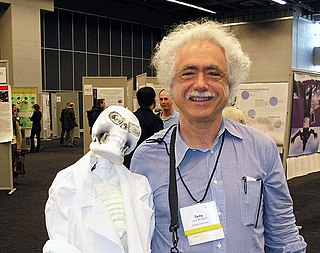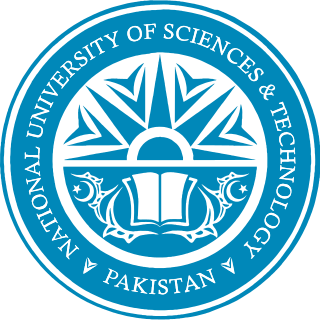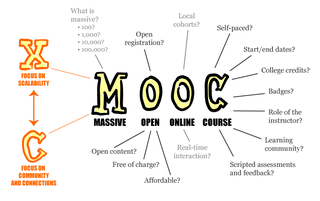
Terry Allen Winograd is an American professor of computer science at Stanford University, and co-director of the Stanford Human–Computer Interaction Group. He is known within the philosophy of mind and artificial intelligence fields for his work on natural language using the SHRDLU program.
The Asia Pacific Institute of Information Technology is an educational organisation specializing in providing education and training programs in computing and information technology. Founded by Datuk Dr Parmjit Singh and based originally in Malaysia, APIIT has since established other centers in Pakistan, India and Sri Lanka. The institute works in collaboration with selected universities in the United Kingdom and has produced more than 14,000 graduates.

Peter Norvig is an American computer scientist and Distinguished Education Fellow at the Stanford Institute for Human-Centered AI. He previously served as a director of research and search quality at Google. Norvig is the co-author with Stuart J. Russell of the most popular textbook in the field of AI: Artificial Intelligence: A Modern Approach used in more than 1,500 universities in 135 countries.

The National University of Sciences & Technology (NUST) is a multi-campus public research university under administration of Pakistan Armed Forces with its main campus in Islamabad, Pakistan.
In artificial intelligence (AI), commonsense reasoning is a human-like ability to make presumptions about the type and essence of ordinary situations humans encounter every day. These assumptions include judgments about the nature of physical objects, taxonomic properties, and peoples' intentions. A device that exhibits commonsense reasoning might be capable of drawing conclusions that are similar to humans' folk psychology and naive physics.

Princess Sumaya University for Technology (PSUT), established in 1991, is a specialized, Non-governmental, Non-profit, Jordanian university, owned by the leading applied research centre in Jordan, the Royal Scientific Society (RSS). PSUT's area of specialization is IT, Communications and Electronics. As a nonprofit institution, PSUT embraces both the public and private sectors, but while akin to public universities in its mission, it is more aligned to the private sector in drive and spirit.
A virtual university provides higher education programs through electronic media, typically the Internet. Some are bricks-and-mortar institutions that provide online learning as part of their extended university courses while others solely offer online courses. They are regarded as a form of distance education. The goal of virtual universities is to provide access to the part of the population who would not be able to attend a physical campus, for reasons such as distance—in which students live too far from a physical campus to attend regular classes; and the need for flexibility—some students need the flexibility to study at home whenever it is convenient for them to do so.
The Bachelor of Computer Science or Bachelor of Science in Computer Science is a type of bachelor's degree awarded after collegiate study in computer science. In general, computer science degree programs emphasize the mathematical and theoretical foundations of computing.

The Ira A. Fulton Schools of Engineering is the engineering college of Arizona State University. The Fulton Schools offers 25 undergraduate and 47 graduate programs in all major engineering disciplines, construction and computer science.
The Penn State College of Information Sciences and Technology, also known as the College of IST, opened in 1999 as the information school of The Pennsylvania State University. Headquartered at the University Park campus in University Park, Pennsylvania, the college's programs are offered at 18 Penn State campus locations. Dr. Andrew Sears currently serves as the college's dean.

Anant Agarwal is an Indian computer architecture researcher. He is a professor of Electrical Engineering and Computer Science at the Massachusetts Institute of Technology (MIT), where he led the development of Alewife, an early cache coherent multiprocessor, and also has served as director of the MIT Computer Science and Artificial Intelligence Laboratory. He is the founder and CTO of Tilera, a fabless semiconductor company focusing on scalable multicore embedded processor design. He also serves as the CEO of edX, a joint partnership between MIT and Harvard University that offers free online learning.
Stanford University has many centers and institutes dedicated to the study of various specific topics. These centers and institutes may be within a department, within a school but across departments, an independent laboratory, institute or center reporting directly to the Dean of Research and outside any school, or semi-independent of the University itself.

Andrew Yan-Tak Ng is a British-born American computer scientist and technology entrepreneur focusing on machine learning and AI. Ng was a co-founder and head of Google Brain and was the former chief scientist at Baidu, building the company's Artificial Intelligence Group into a team of several thousand people.

Global Academy of Technology (GAT) is an Autonomous engineering and management college in Bangalore, Karnataka. It was established in the year 2001. The campus has more than 3000+ students and 300 faculty and staff.

A massive open online course is an online course aimed at unlimited participation and open access via the Web. In addition to traditional course materials, such as filmed lectures, readings, and problem sets, many MOOCs provide interactive courses with user forums or social media discussions to support community interactions among students, professors, and teaching assistants (TAs), as well as immediate feedback to quick quizzes and assignments. MOOCs are a widely researched development in distance education, first introduced in 2008, that emerged as a popular mode of learning in 2012.

Udacity, Inc. is an American for-profit educational organization founded by Sebastian Thrun, David Stavens, and Mike Sokolsky offering massive open online courses.

Fei-Fei Li is an American computer scientist. She is the Sequoia Capital Professor of Computer Science at Stanford University. Li is a Co-Director of the Stanford Institute for Human-Centered Artificial Intelligence, and a Co-Director of the Stanford Vision and Learning Lab. She served as the director of the Stanford Artificial Intelligence Laboratory (SAIL) from 2013 to 2018.
Stanford Online is an educational initiative launched by Stanford University which offers a variety of professional education opportunities. As a part of Stanford Online, Stanford University created an open access OpenEdX platform which offered a variety of massive open online courses (MOOCs) in 2013, but that site is no longer accessible. Online classes previously offered on that platform can now be accessed on an updated platform known as edx that offers a wide range of online courses covering many topics. Some of the online classes offered by Stanford Online on this platform are available free of charge. Classes can be accessed from anywhere around the world.
E-Learning, or educational technology, in Pakistan has developed mostly in the 21st century. Online universities and e-learning platforms in the country have also opened in recent years. The introduction of 3G/4G technology has contributed to the growth in m-learning, allowing the incorporation of e-learning in classrooms as well as in informal education. Education in Pakistan is under the administration of Federal and provincial governments, allowing multiple e-learning opportunities for individuals in Pakistan.
Michael Genesereth is an American logician and computer scientist, who is most known for his work on computational logic and applications of that work in enterprise management, computational law, and general game playing. Genesereth is professor in the Computer Science Department at Stanford University and a professor by courtesy in the Stanford Law School. His 1987 textbook on Logical Foundations of Artificial Intelligence remains one of the key references on Symbolic artificial intelligence. He is the author of the influential Game Description Language (GDL) and Knowledge Interchange Format (KIF), the latter of which led to the ISO Common Logic standard.